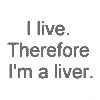Leaderboard
Popular Content
Showing content with the highest reputation on 12/10/20 in all areas
-
Probably depends on how we define religion. I'm of the perspective that basic religious tendencies began well before human primates, and we also know that group control and power is seen throughout the animal kingdom. Religion for a wolf could be something simple like, "don't go into the grey's territory or we'll lose our pups" and could include teachings like, "if you respect this set of trees, they will feed you with bunny rabbits when it gets cold." That just evolves into the more formalized stuff we have today (abrahamic and more eastern philosophies alike). Those "teachings" and "codes of behavior" very much were spread through war mentalities because animals kill those who don't subscribe to the "this is my land, bee-atch!!" dogma... Haha... dog-ma...about wolves. I'm in town all week, folks. More like a wave... Dim is a wave/particle duality/complimentarity kinda guy... 😁2 points
-
I have to ask "If you are not going about it scientifically "how do you know if any trace elements are missing and why are you asking questions on a science site"? You are simply using your own opinion and you are welcome to that but that is meaningless in a discussion like this.2 points
-
As I understand from the paper attached to opening post the data that the NN works with is a sequence and the LSTM model was tested and successful compared to some other approaches for that data. But why @zak100 have selected this specific paper and approach as a starting point is unclear. But authors also acknowledges limitations that may be addressed in future work. One example is limitation regarding loops and function calls in the contracts. Personally I do not have enough experience from this topic to recommend a solution for the issues raised in the paper.2 points
-
The UK government have updated 'The Green Book' with chapter 14a which provides reliable information about Covid vaccines and vaccination proceedures. https://assets.publishing.service.gov.uk/government/uploads/system/uploads/attachment_data/file/941450/Greenbook_chapter_14a_v2.pdf Bote the grren book itself is a good source of information on vaccines in general. https://www.gov.uk/government/collections/immunisation-against-infectious-disease-the-green-book1 point
-
The idea of booster shots is to re-immunize after the initial response goes down. If applied too early the issue is that either it does not prolong immunity and in some cases can result in hypersensitivity in rare cases. Waiting too long can also result in reduced level of protection if the priming effect wears off. I suspect that the time is what has been used during the trials as I suspect there was not enough time to optimize the interval.1 point
-
Hmm. I'd have to ask why you think that I think war and torture are moral. I don't think I said or implied that. So is it safe to say that suicide in itself isn't immoral, it is the fact a person has done something that profoundly hurt others that makes it immoral? (My brother-in-law contracted AIDS back when it was a death sentence. He killed himself in a bathroom in his parent's home.)1 point
-
For your first example, Zap, I would think if you put people in an immoral situation, you can't expect the results to be moral. I would ask you why you think war and torture are moral. For your second and third examples, you should keep in mind that immoral acts don't affect you; they affect others. The perceived 'crime' of suicide doesn't affect you ( you simply die ) but it causes unmeasurable grief to family, friends, and all who care about you. These are merely opinions. And as I've previously said, this is what I think now, being of sound mind ( ? ) and body. I don't know what I'd do if I was in a situation that made me 'consider' suicide, so I don't judge others who may do otherwise, but I feel for their families. ( had a friend who took his life, due to a work situation, by cutting his throat with a box-cutter; his wife and kids found him in the garage in a pool of blood )1 point
-
I will give you generic answer, If you have company X *), making product Y *), you can search net for "X Y SDK" to check if said company offers Software Development Kit (SDK), https://en.wikipedia.org/wiki/Software_development_kit Which can be used by 3rd party developer to extend functionality of product Y. Sometimes such SDK are only available after signing NDA. SDK comes with sample projects for various programming languages, usually C/C++, or web API (e.g. JSON), or external static or dynamic linkable library with headers. With documentation describing how to use it. After downloading you join community, i.e. other 3rd party developers, and have access to programmers in said company X. They will answer your questions which will appear during development using their SDK. *) X and Y are meaningless. Can be anything.1 point
-
Just a few examples: 1. You have information on where your WWII agents are in France. The Nazis are about to catch you and if they do, they will extract the location of your compatriots from you in a gruesome manner and kill them, right after they kill you. You've been supplied with a cyanide pill. 2. You have an incurable painful disease that you've been suffering with for two years. It will be another six months before you finally succumb. 3. You are elderly, family history of Alzheimer's disease, it is getting bad for you and you know it is only a matter of time. You don't wish to impose the financial or emotional burden on your family, not to mention having to live your final months having your diaper changed by a stranger making minimum wage. If you don't think suicide in any of these situations can be morally justified, can you tell me why? Is your moral objection only for you, or do you feel it cannot be morally justified for anyone?1 point
-
LSTMs are a couple years away from cutting edge. This is a big ask but let me ask have you implemented a convoluted neural network before? An LSTM is basically a recurrent net built with four CNNs (that’s a simplification please don’t take that too literally) one for input, one each for short and long term memory and then finally an output network. As I said this is a complex network so if you haven’t built a CNN you need to learn how to do that before scaling up. Also what is this for? LSTMs tend to be best for time series analysis (stock prices, sales data, etc) so there may be a simpler network you could use for your problem.1 point
-
Speaking of trace elements and digesting non-food stuff, many animals, including primates like us, have urges to eat dirt. This is especially true during pregnancy, and there have been studies done that suggests this is an instinctive way to get access to trace elements when food is scarce, as well as introducing a varied bacterial flora into the digestive system. It also fills you up when you are hungry. I think Bart's biggest problem is his dissociation of science from nature, and I usually laugh at people who say they prefer 'natural' as opposed to 'tainted by science'. They don't seem to realise science is simply the observation of how nature works. What could be more natural ???1 point
-
I think you've confused this place with your personal blog. I've known some little girls who for some reason get focused on one thing (usually horses or unicorns) and that is all they ever think about, talk about, draw, collect, etc. It's an interesting phenomenon.1 point
-
One should add that one can get high quality soil rather easily. A lot of things you introduce, e.g. volcanic soil or other fertilizers are rather rich in trace elements. While nitrogen can be fixed by some plants (in conjunction with bacteria, which is the basic idea of crop rotation), phosphorus tends to be the limiting factor in large-scale agriculture. The other thing to consider is of course yield. A plant might grow and produce crop, but one might get much less than with proper fertilization. And of course there is the difference between aiming for self-sustenance or large-scale production to feed everyone.1 point
-
Hi Markus. The Battery University site is the place to look. Practical strategy. Try and keep your battery above 20% before recharging, so use no more than 80% of the battery if possible. Topping up everyday is much kinder than fully discharging until the device switches off. Never leave your battery empty for significant amounts of time....like days. The battery's safe voltage range is 3.2v to 4.2v. A lot of devices will switch off by default at around 3.2v. This saves some residual charge to keep the battery in safe condition. The 'ideal' range is to keep it between 20-90% charged. Most devices don't actually charge to 100%... overcharging is problematic from a safety point of view, If you use the device everyday, charge at the end of the day or after use. Regular discharging to exhaustion really shortens the battery life. Bear in mind practical realities will dictate that you will run it it down now and again to off... you can't avoid it. I get about 2-3 years of everyday use before I think the maximum charge capacity has fallen by half. If battery life matters, don't use quick charging and don't use the device straight after charging, if possible. These are things to aim for but life dictates otherwise sometimes. Avoiding excessive discharge and heat are the main things. To summarize: daily charging is much better for battery life and safety than running flat then charging. Long term device storage when not in use wants to be around 50% filled.1 point
-
1 point
-
I presume this is an advert trying to sell a book to people who don't understand rain.1 point
-
I've had the problem for years. I gave up on water at least a decade ago. Warm, cold, bottled, chugged or sipped...it just gave me a bellyache. I always just figured it was chlorine or chloramine. No matter. For unrelated medical reasons, in 1999 I switched over to Pepsi, first as a way to flush out a PEG, then to dissolve crap in my mouth. The PEG is long gone but the other problem is still present to some extent. And I still drink Pepsi. So, no, you're not alone.1 point
-
I had a similar problem; i couldn't drink pure water. It made me sick and i would almost throw up. Then i learned about "drinking techniques". Start with a little water daily. Take very small sips and a deep breath after every sip. It worked for me. (Not that i like water now, but i can drink it if there's nothing else.) Sweetening it with honey solves the problem anyway, for me. Sugar doesn't work.1 point
-
Water is terrible stuff. Have you ever considered what fish do in it? What you need is a little disinfectant added, to kill the nasties. I have always found that whiskey works well! More seriously, I think your problem is probably psychosomatic. This is not meant as an insult. I have a psychosomatic response to eating certain fish. I know where it came from - a nasty bout of food poisoning many years ago. My body learned that certain fish tastes are not good, and it 'saves' me from poisoning by making me nauseous each time I eat strong flavoured fish. I know this is purely in the mind, but that does not reduce the problem. I suspect you have a similar problem with water. It cannot be physical, since you take in water in any drink, regardless of the flavour. Why not enjoy the problem. Make sure you have lots of whatever drink you like, and enjoy it?-1 points












